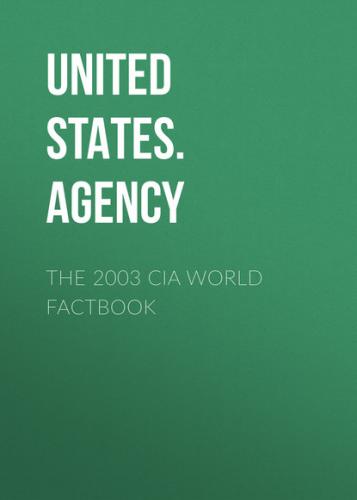Executive branch:
chief of state: President Vaclav KLAUS (since 7 March 2003)
note: the Czech Republic's first president Vaclav HAVEL stepped down
from office on 2 February 2003 having served exactly 10 years;
parliament finally elected a successor on 28 February 2003 after two
inconclusive elections in January 2003
head of government: Prime Minister Vladimir SPIDLA (since 12 July
2002), Deputy Prime Ministers Bohuslav SOBOTKA (since 20 August
2003), Cyril SVOBODA (since July 2002), Stanislav GROSS (since July
2002), Petr MARES (since July 2002)
cabinet: Cabinet appointed by the president on the recommendation of
the prime minister
election results: Vaclav KLAUS elected president on 28 February
2003; Vaclav KLAUS 142 votes, Jan SOKOL 124 votes (third round;
combined votes of both chambers of parliament)
elections: president elected by Parliament for a five-year term;
last successful election held 28 February 2003 (after earlier
elections held 15 and 24 January 2003 were inconclusive); prime
minister appointed by the president
Legislative branch:
bicameral Parliament or Parlament consists of the Senate or Senat
(81 seats; members are elected by popular vote to serve six-year
terms; one-third elected every two years) and the Chamber of
Deputies or Poslanecka Snemovna (200 seats; members are elected by
popular vote to serve four-year terms)
election results: Senate - percent of vote by party - NA%; seats by
party - ODS 26, KDU-CSL 14, CSSD 11, US 9, KSCM 3, independents 18;
Chamber of Deputies - percent of vote by party - CSSD 30.2%, ODS
24.5%, KSCM 18.5%, KDU-CSL & US-DEU coalition 14.3%, other minor
12.5%; seats by party - CSSD 70, ODS 58, KSCM 41, KDU-CSL 21, US-DEU
10
elections: Senate - last held in two rounds 25–26 October and 1–2
November 2002 (next to be held NA November 2004); Chamber of
Deputies - last held 14–15 June 2002 (next to be held by NA June
2006)
Judicial branch:
Supreme Court; Constitutional Court; chairman and deputy chairmen
are appointed by the president for a 10-year term
Political parties and leaders:
Christian and Democratic Union-Czechoslovak People's Party or
KDU-CSL [Miroslav KALOUSEK, chairman]; Civic Democratic Alliance or
ODA [Michael ZANTOVSKY, chairman]; Civic Democratic Party or ODS
[Mirek TOPOLANEK, chairman]; Communist Party of Bohemia and Moravia
or KSCM [Miroslav GREBENICEK, chairman]; Communist Party of
Czechoslovakia or KSC [Miroslav STEPAN, chairman]; Czech National
Social Party of CSNS [Jan SULA, chairman]; Czech Social Democratic
Party or CSSD [Vladimir SPIDLA, chairman]; Freedom Union-Democratic
Union or US-DEU [Petr MARES, chairman]; Quad Coalition [Karel KUHNL,
chairman] (includes KDU-CSL, US, ODA, DEU)
Political pressure groups and leaders:
Czech-Moravian Confederation of Trade Unions [Richard FALBR]
International organization participation:
ACCT (observer), Australia Group, BIS, CE, CEI, CERN, EAPC, EBRD,
ECE, EU (applicant), FAO, IAEA, IBRD, ICAO, ICC, ICCt (signatory),
ICFTU, ICRM, IDA, IEA, IFC, IFRCS, ILO, IMF, IMO, Interpol, IOC,
IOM, ISO, ITU, MONUC, NATO, NEA, NSG, OAS (observer), OECD, OPCW,
OSCE, PCA, PFP, UN, UNAMSIL, UNCTAD, UNESCO, UNIDO, UNITAR, UNMEE,
UNMIBH, UNMIK, UNMOP, UNMOT, UNOMIG, UPU, WCL, WCO, WEU (associate),
WFTU, WHO, WIPO, WMO, WToO, WTrO, ZC
Diplomatic representation in the US:
chief of mission: Ambassador Martin PALOUS
chancery: 3900 Spring of Freedom Street NW, Washington, DC 20008
consulate(s) general: Los Angeles and New York
FAX: [1] (202) 966–8540
telephone: [1] (202) 274–9100
Diplomatic representation from the US:
chief of mission: Ambassador Craig R. STAPLETON
embassy: Trziste 15, 11801 Prague 1
mailing address: use embassy street address
telephone: [420] (2) 5753–0663
FAX: [420] (2) 5753–0583
Flag description:
two equal horizontal bands of white (top) and red with a blue
isosceles triangle based on the hoist side (identical to the flag of
the former Czechoslovakia)
Economy Czech Republic
Economy - overview:
One of the most stable and prosperous of the post-Communist states,
the Czech Republic has been recovering from recession since
mid-1999. Growth in 2000–03 was supported by exports to the EU,
primarily to Germany, and a near doubling of foreign direct
investment. Domestic demand is playing an ever more important role
in underpinning growth as interest rates drop and the availability
of credit cards and mortgages increases. High current account
deficits - averaging around 5% of GDP in the last several years -
could be a persistent problem. Inflation is under control. The EU
put the Czech Republic just behind Poland and Hungary in
preparations for accession, which will give further impetus and
direction to structural reform. Moves to complete banking,
telecommunications, and energy privatization will encourage
additional foreign investment, while intensified restructuring among
large enterprises and banks and improvements in the financial sector
should strengthen output growth. But revival in the European
economies remains essential to stepped-up growth.
GDP:
purchasing power parity - $157.1 billion (2002 est.)
GDP - real growth rate:
2% (2002 est.)
GDP - per capita:
purchasing power parity - $15,300 (2002 est.)
GDP - composition by sector: agriculture: 3.8% industry: 41% services: 55.2% (2001)
Population below poverty line:
NA%
Household income or consumption
